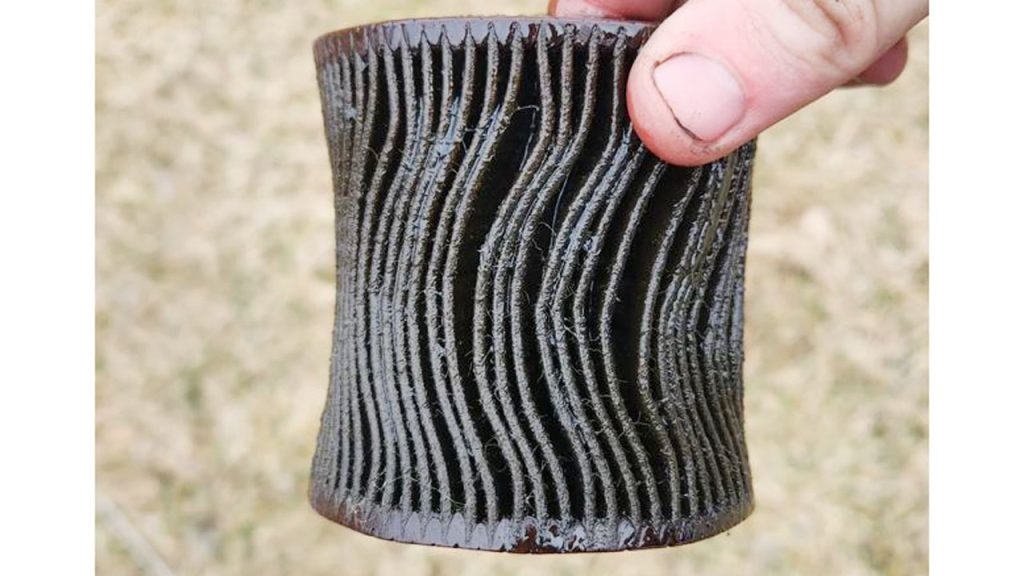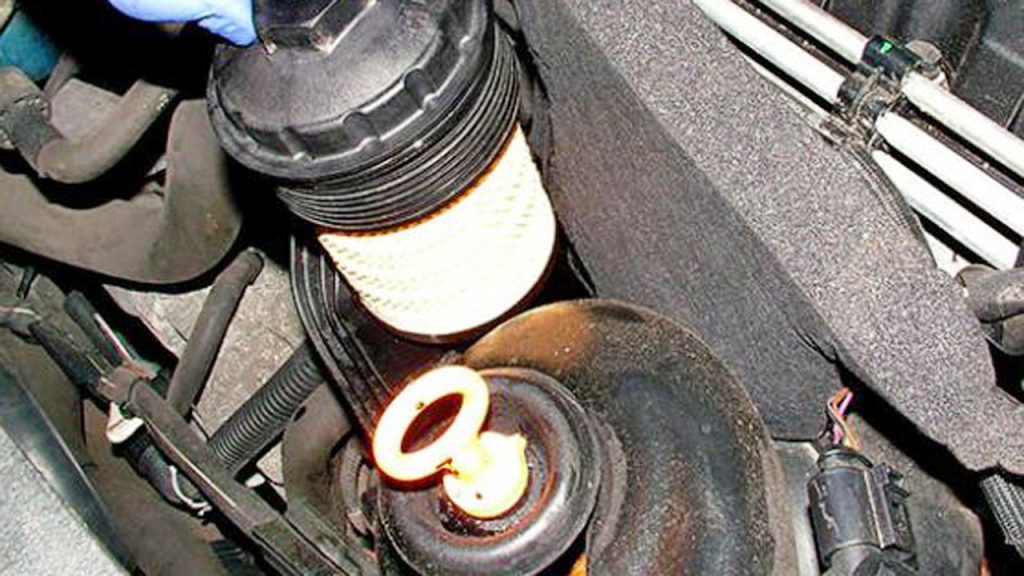If you’ve ever wondered why your car isn’t running as smoothly as it should or noticed your engine light flickering on, you might be dealing with a clogged oil filter. I’ve been through this myself, and it’s one of those issues that can seem minor at first but lead to significant problems if left unaddressed. Let me guide you through what causes an oil filter to clog, how to recognize it, and what you can do to keep your engine healthy.

Image by reddit
Role of an Oil Filter
Before diving into the causes, it’s essential to understand what an oil filter does. The oil filter plays a crucial role in your engine’s performance. It’s responsible for removing contaminants like dirt, metal particles, and debris from the engine oil. Clean oil ensures the engine’s moving parts are lubricated and working efficiently, reducing wear and tear.
When the oil filter becomes clogged, it can no longer do its job, leading to poor engine performance or, worse, engine damage.
Common Causes of a Clogged Oil Filter
Now, let’s break down the main reasons why oil filters get clogged over time.
Neglecting Regular Oil Changes
One of the most common causes of a clogged oil filter is not changing the oil and filter at regular intervals. Over time, oil collects debris and loses its viscosity. The longer you go without an oil change, the harder it is for the filter to keep contaminants out of the engine.
- Why It Happens: Old oil accumulates more dirt and sludge, which the filter struggles to trap.
- Solution: Follow your car manufacturer’s recommended oil change schedule, typically every 3,000 to 5,000 miles, or as specified for synthetic oils.
Using Low-Quality Oil
Not all oils are created equal. Low-quality or incorrect oil can lead to faster accumulation of contaminants, which puts extra strain on the filter.
- Why It Happens: Cheap oils often lack the necessary additives to keep your engine clean.
- Solution: Use high-quality oil that meets your car’s specifications.
Driving in Harsh Conditions
If you’re frequently driving in dusty environments, stop-and-go traffic, or extreme weather, your oil filter works harder to keep contaminants out of the engine.
- Why It Happens: Dust and debris enter the engine more easily, clogging the filter faster.
- Solution: Consider more frequent oil and filter changes if you drive in harsh conditions.
Engine Sludge Build-Up
Engine sludge is a thick, sticky substance that forms when oil breaks down due to heat and contamination. This sludge can quickly clog the oil filter.
- Why It Happens: Poor maintenance or using the wrong type of oil can lead to sludge formation.
- Solution: Regular oil changes and using the right oil can prevent sludge build-up.
Worn-Out Engine Components
If your engine is aging or has worn-out parts, it can shed more metal particles into the oil. These particles clog the filter and reduce its efficiency.
- Why It Happens: Wear and tear produce more debris that the oil filter must trap.
- Solution: Regular engine maintenance can minimize this issue.
Faulty or Cheap Oil Filters
Not all oil filters are of the same quality. A poorly designed or cheap filter may clog more easily or fail to filter out contaminants effectively.
- Why It Happens: Inferior materials and design can’t handle the workload.
- Solution: Invest in a high-quality oil filter from a reputable brand.
Symptoms of a Clogged Oil Filter
Recognizing the signs of a clogged oil filter can save you from bigger engine problems down the road. Here’s what to watch for:
- Decreased Engine Performance: If your engine feels sluggish, it could be due to restricted oil flow.
- Engine Overheating: A clogged filter can cause oil starvation, leading to overheating.
- Unusual Noises: Knocking or metallic sounds might indicate insufficient lubrication.
- Low Oil Pressure Warning Light: Modern cars often alert you when oil pressure drops due to a clogged filter.
- Dark or Dirty Oil: Check your oil regularly; if it’s dark and thick, the filter may not be working correctly.
Consequences of Ignoring a Clogged Oil Filter
Let me be honest—ignoring a clogged oil filter is asking for trouble. Here are some of the risks:
- Reduced Fuel Efficiency: A clogged filter forces the engine to work harder, burning more fuel.
- Engine Damage: Without proper lubrication, engine components can wear out quickly.
- Costly Repairs: Replacing an engine is significantly more expensive than regular oil changes.
How to Prevent a Clogged Oil Filter
Prevention is always better than cure, especially when it comes to your car’s engine. Here are some tips to keep your oil filter in good condition:
- Stick to a Maintenance Schedule: Regular oil and filter changes are your best defense.
- Use the Right Products: Always use the oil and filter recommended by your car manufacturer.
- Inspect Your Oil Regularly: Check the oil level and quality every few weeks.
- Avoid Short Trips: Frequent short trips don’t allow the engine to reach optimal temperature, leading to oil contamination.
Quick Comparison of Oil Filter Maintenance Practices
| Practice | Why It’s Important | Recommended Action |
|---|---|---|
| Regular Oil Changes | Keeps oil clean and reduces filter workload | Change every 3,000-5,000 miles |
| High-Quality Oil | Reduces sludge and contaminants | Use manufacturer-recommended oils |
| Driving Habits | Avoids unnecessary strain on the filter | Limit short trips; avoid harsh driving |
| Quality Oil Filters | Ensures proper filtration and longevity | Choose trusted brands like Bosch or Wix |
My Experience with a Clogged Oil Filter
I’ll never forget the time my car started acting up on a road trip. The engine light came on, and I noticed reduced performance. After pulling into a service station, I learned my oil filter was completely clogged. Thankfully, a quick oil change solved the issue, but it taught me the importance of regular maintenance.
Since then, I’ve made it a point to check my oil and replace the filter on schedule. Trust me, it’s a small investment of time and money that can save you from headaches later on.
Conclusion
A clogged oil filter may seem like a minor issue, but it can lead to serious engine problems if ignored. The good news is that it’s entirely preventable with regular maintenance and good driving habits.
By understanding what causes a clogged oil filter and recognizing the symptoms early, you can keep your engine running smoothly and extend the life of your vehicle. Remember, your car is an investment, and taking care of it ensures it serves you well for years to come.
FAQs
What happens if you don’t change your oil filter?
If you don’t change the oil filter, it can clog, reducing oil flow to the engine and potentially causing overheating or damage.
How often should you replace the oil filter?
It’s generally recommended to replace the oil filter every time you change your oil, typically every 3,000 to 5,000 miles.
Can a clogged oil filter cause the engine to overheat?
Yes, a clogged oil filter can restrict oil flow, leading to insufficient lubrication and overheating.
Is it okay to drive with a clogged oil filter?
Driving with a clogged oil filter isn’t safe and can lead to engine damage. It’s best to address the issue as soon as possible.
How can I tell if my oil filter is clogged?
Signs include reduced engine performance, low oil pressure, dark oil, and unusual engine noises.


